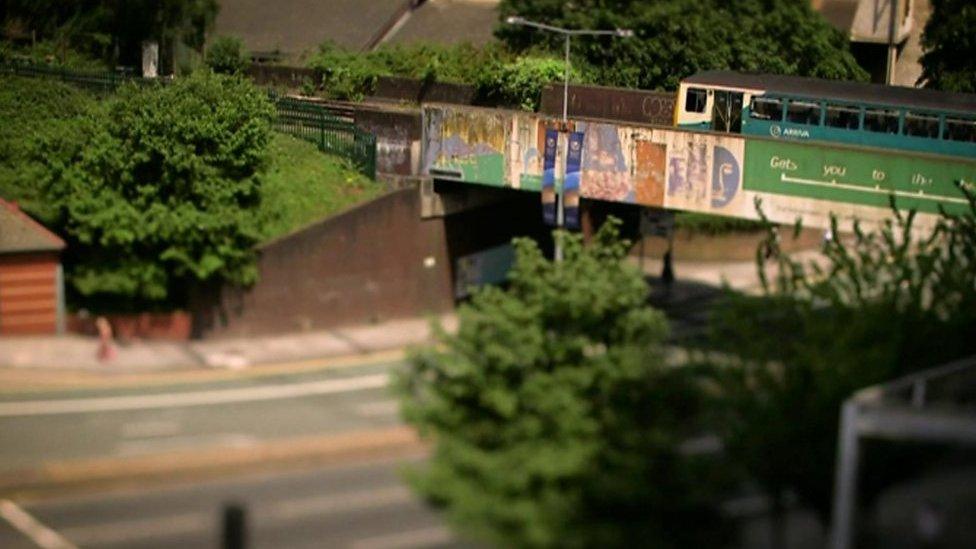Bus interchange future for Cardiff to be revealed
- Published
Cardiff's population is set to swell over the next 20 years - can the transport network cope?
New central bus station plans for Cardiff will be revealed in July, BBC Wales has been told.
The former station was closed and demolished in 2015 to make way for BBC Wales' new home at Central Square.
The city council's new leader Huw Thomas said a replacement would be brought forward in fresh cabinet plans.
It comes as BBC Wales' Week In Week Out programme asks how Cardiff will deal with an expected 80,000 new residents in the city over the next 20 years.
"All will be revealed when I bring forward the cabinet paper in July - but be very clear - we will be delivering a bus station for Cardiff within my administration," said Mr Thomas.
Cardiff needs a transport 'behaviour change', the city's leader says
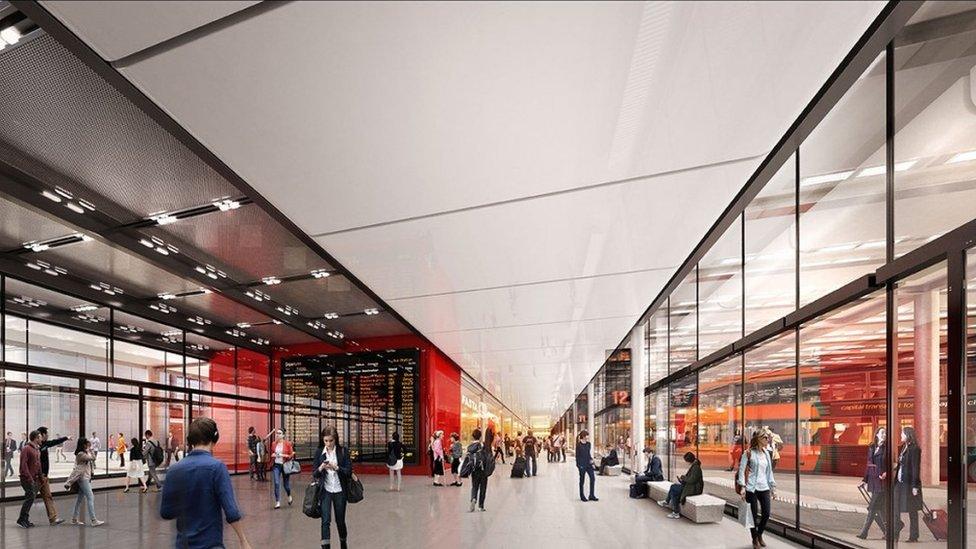
Plans for the interchange show how it could look - but Cardiff is still waiting for its new station
The current council administration is in place for four years, but Mr Thomas insisted that was not the timetable to complete the new station.
"It'll be less than that," he stressed.
The council has faced some criticism for allowing the previous bus station to be knocked down before a deal on its replacement was finalised with developers, Rightacres.
Proposals for a bus station with 14 stands, cycle hub with 500 spaces and retail units on the site of the demolished Marland House and NCP car park were put to the council in February, but a decision was deferred ahead of local elections in May.
Paul McCarthy, chief executive of Rightacres, told BBC Wales: "We've always said that this development wouldn't prejudice the delivery of a new bus station.
"And there is a bus station coming. And I think that as part of 'the sell' [for the development], we presented that there would be a bus station, so we have a responsibility to deliver.
"The way in which we deliver that, from a financial point of view, is that we have got to come up with the right mix of uses above the interchange, that makes it a positive equation.
"At that point, we can deliver it."
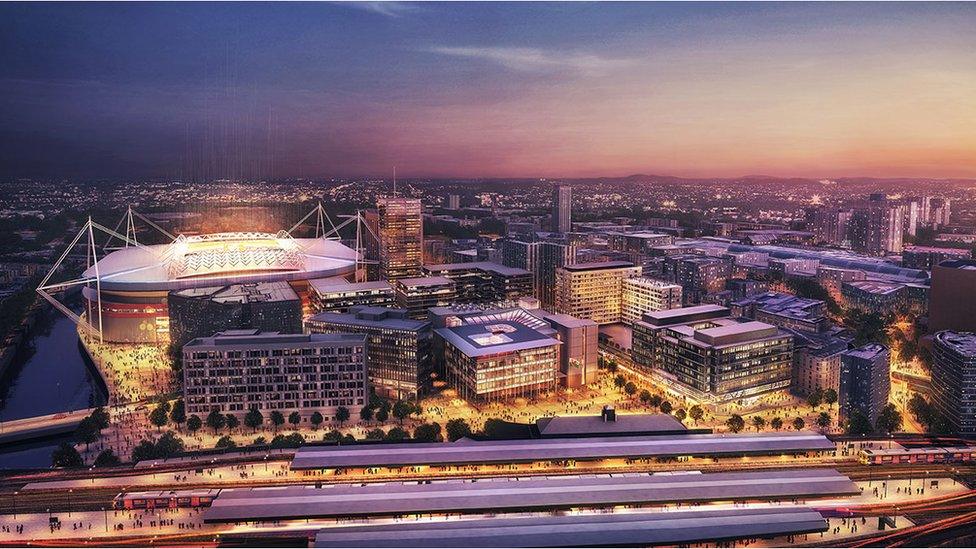
An artist's impression shows how Central Square will look once complete
But infrastructure, such as the bus station, is just one of the pressing issues facing the expanding city.
According to Cardiff's local development plan, 41,000 new homes will need to be built over the next two decades - much of that on greenfield sites on the fringes of the city.
One development, Plasdwr, will see 7,000 homes built by Redrow in the north-west of Cardiff, with the developer being asked to pay £28m towards improving transport networks, including bus and bike use.
But Roger Tanner from Cardiff Civic Society said he feared the money was not enough - and would not deliver.
"People don't like travelling by bus if they don't have to," he said.
'5,000 extra cars' warning as Cardiff expands
"People will only use public transport if it's better than a private car, if it's reasonably priced and it's accessible. None of those things apply in this area."
A former planner himself, Mr Tanner said he feared the Plasdwr development would lead to "5,000 extra vehicle journeys" pulling on to already congested roads.
But the city's council leader said he was confident there would be a change in how people commute.
"We have to look at behaviour change, we have to look at delivering a modal shift in the way people travel around the city," said Mr Thomas.
He said he wanted to see a 50-50 split between car use and sustainable transport, including bus, bike and on foot.
"What's critical is that we invest wisely to put those options before people and encourage them and give them the options to do that," he added.
Week In Week Out: Cardiff's Growing Pains is on BBC One Wales at 22:40 BST on Tuesday, 27 June or on the BBC iPlayer.
- Published19 March 2017
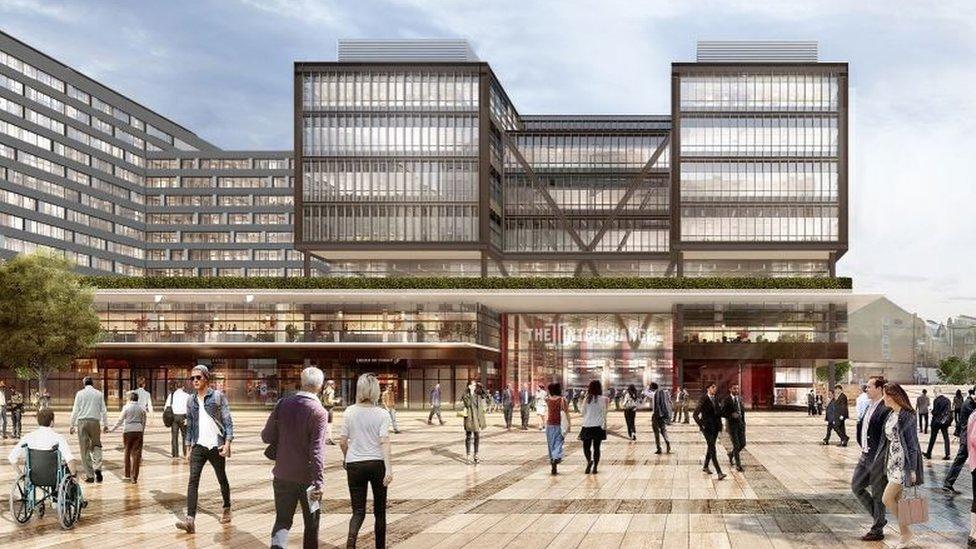
- Published1 August 2015
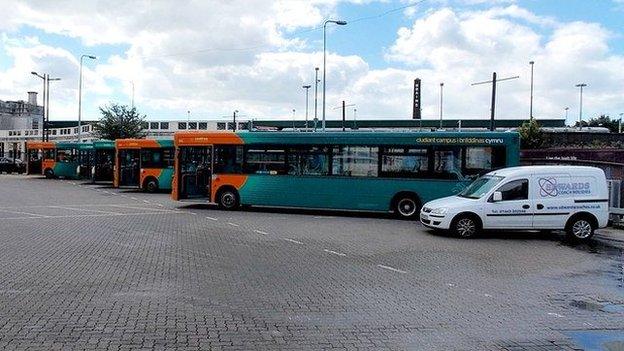
- Published25 February 2017
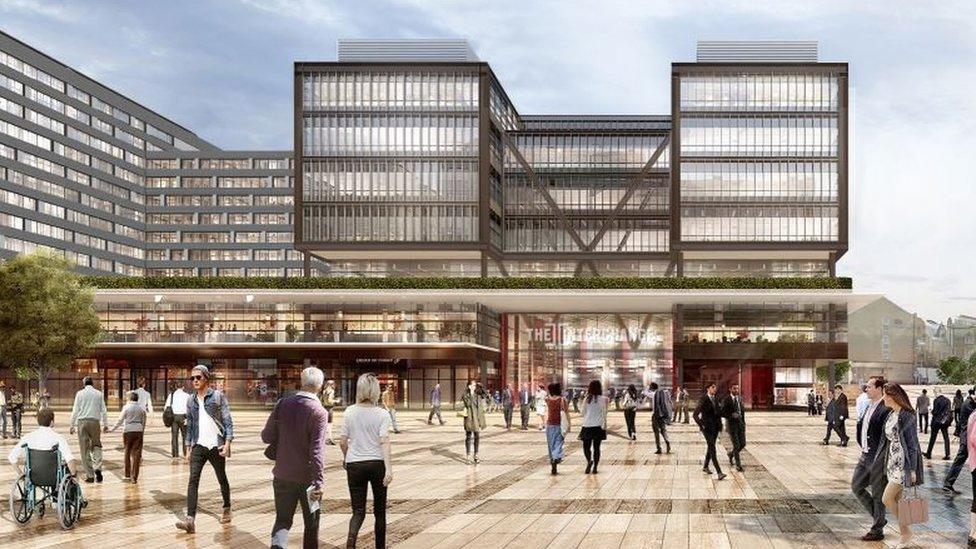
- Published27 June 2017
